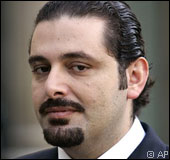 WASHINGTON – Lebanese parliament member Saad Hariri, son of slain prime minister Rafic Hariri, expressed interest in seeing the U.S. send equipment to help Lebanon protect its borders.
WASHINGTON – Lebanese parliament member Saad Hariri, son of slain prime minister Rafic Hariri, expressed interest in seeing the U.S. send equipment to help Lebanon protect its borders.
Speaking to a crowd of 150 and nearly a dozen TV cameras, Hariri, named to Forbes’ list of the World’s Richest People, also mentioned he aims to discuss this and other issues–including the investigation into his father’s death–with President Bush during a three-day visit to Washington. The pit stop follows meetings earlier in January with French President Jacques Chirac and U.S. Vice President Dick Cheney during his Middle East tour focused on the Lebanon-Syria crisis and regional security.
Hariri has lived for the past few months in a self-imposed exile in Saudi Arabia, where he holds dual citizenship and lives off a $1.25 billion fortune. Saudi Arabia is also the headquarters for Saudi Oger, a $3.25 billion (sales) construction and telecommunications company that employs 38,000 and was led by Hariri until his political career took off last year.
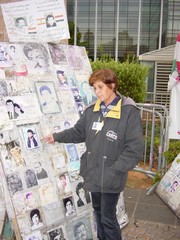 BEIRUT, 23 Jan 2006 (IRIN) – Ten months after the start of a sit-in protest in front of UN headquarters in Beirut, the families of Lebanese nationals who have disappeared or been detained in Syria say their campaign for information is making little progress. "None of our demands have been met and nothing new is being done on the issue," said Samia Abdallah, whose brother, a member of the Palestinian National Liberation Movement in Lebanon, was arrested by Syrian agents in 1984.
BEIRUT, 23 Jan 2006 (IRIN) – Ten months after the start of a sit-in protest in front of UN headquarters in Beirut, the families of Lebanese nationals who have disappeared or been detained in Syria say their campaign for information is making little progress. "None of our demands have been met and nothing new is being done on the issue," said Samia Abdallah, whose brother, a member of the Palestinian National Liberation Movement in Lebanon, was arrested by Syrian agents in 1984.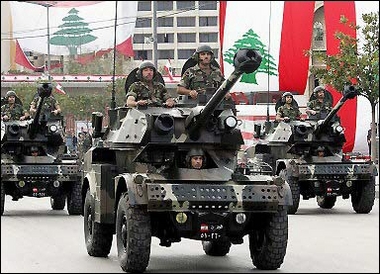 DUBAI, 23 January (IRIN) – Political observers often cite Lebanon as an example of freedom and democracy amidst other non-democratic states in the region. They point to the country’s relatively free press, and the fact that no major political parties have been banned. Consequently, Lebanon’s political landscape has not been dominated by one family or party, but by a variety of faces and parties.
DUBAI, 23 January (IRIN) – Political observers often cite Lebanon as an example of freedom and democracy amidst other non-democratic states in the region. They point to the country’s relatively free press, and the fact that no major political parties have been banned. Consequently, Lebanon’s political landscape has not been dominated by one family or party, but by a variety of faces and parties. 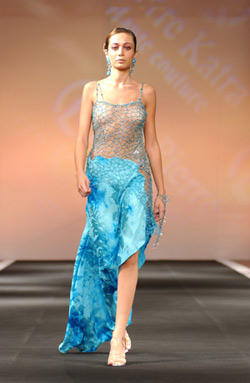 Pierre and Hadi Katra announce their first appearance in the United States and New York (NY) Fashion Week this February 3rd-4th at Grand Hyatt. After long negotiations with International Fashion Shows Headquarters in Switzerland, the Katras have agreed to present an exclusive collection for the organization’s special fundraiser gala."We have personally met with Sianetta Sunnasee of International Fashion Shows, and we find her intent to be sincere and true," says Pierre Katra. "Our group is designing an exclusive collection, specifically for the New York Fashion Week event.
Pierre and Hadi Katra announce their first appearance in the United States and New York (NY) Fashion Week this February 3rd-4th at Grand Hyatt. After long negotiations with International Fashion Shows Headquarters in Switzerland, the Katras have agreed to present an exclusive collection for the organization’s special fundraiser gala."We have personally met with Sianetta Sunnasee of International Fashion Shows, and we find her intent to be sincere and true," says Pierre Katra. "Our group is designing an exclusive collection, specifically for the New York Fashion Week event.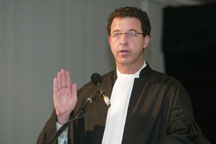 DAMASCUS/BEIRUT, 19 Jan 2006 (IRIN) – With the imminent arrival of Serge Brammertz, the United Nation
DAMASCUS/BEIRUT, 19 Jan 2006 (IRIN) – With the imminent arrival of Serge Brammertz, the United Nation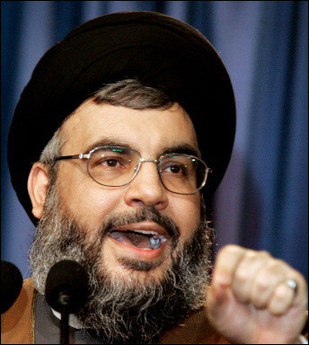 BEIRUT (Reuters) – The head of Lebanon’s Hizbollah guerrilla group has called on Saudi Arabia and Egypt to intervene to resolve a crisis brewing in Lebanon. In an interview published on Wednesday in the pan-Arab al-Hayat newspaper, Sayyed Hassan Nasrallah appeared to back Saudi mediation to ease tensions between Lebanon and Syria, and called for efforts to resolve rifts among Lebanese leaders.
BEIRUT (Reuters) – The head of Lebanon’s Hizbollah guerrilla group has called on Saudi Arabia and Egypt to intervene to resolve a crisis brewing in Lebanon. In an interview published on Wednesday in the pan-Arab al-Hayat newspaper, Sayyed Hassan Nasrallah appeared to back Saudi mediation to ease tensions between Lebanon and Syria, and called for efforts to resolve rifts among Lebanese leaders. 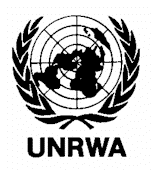 BEIRUT, 18 January (IRIN) – The UN Relief Works Agency for Palestine Refugees (UNRWA) refuted accusations that it had reduced the quality of medical care for Palestinian refugees in Lebanon, following reports of deteriorating health services. "UNRWA has reduced neither the quantity nor the quality of medical care," said Hoda al-Turk, assistant public information officer at UNRWA. "On the contrary, it has signed an agreement with a hospital that offers first class medical care at a very reasonable cost."
BEIRUT, 18 January (IRIN) – The UN Relief Works Agency for Palestine Refugees (UNRWA) refuted accusations that it had reduced the quality of medical care for Palestinian refugees in Lebanon, following reports of deteriorating health services. "UNRWA has reduced neither the quantity nor the quality of medical care," said Hoda al-Turk, assistant public information officer at UNRWA. "On the contrary, it has signed an agreement with a hospital that offers first class medical care at a very reasonable cost." 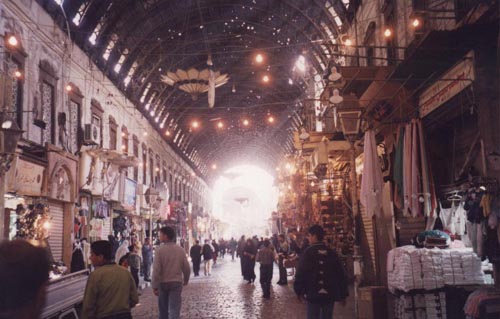 By Rasha Elass, DAMASCUS (Reuters) – For generations, Lebanese shoppers have journeyed to neighboring Syria to stock their larders and buy clothes and even furniture at bargain prices.But many have stayed at home since the assassination of Lebanon’s former Prime Minister Rafik al-Hariri last February put a chill on once-cosy relations between the two countries."I used to buy everything from Syria. My wife and daughters would head up there every couple of weeks to buy food, clothes, washing powder because it is less than half the price," said Hassan, a Lebanese driver with seven children living at home.
By Rasha Elass, DAMASCUS (Reuters) – For generations, Lebanese shoppers have journeyed to neighboring Syria to stock their larders and buy clothes and even furniture at bargain prices.But many have stayed at home since the assassination of Lebanon’s former Prime Minister Rafik al-Hariri last February put a chill on once-cosy relations between the two countries."I used to buy everything from Syria. My wife and daughters would head up there every couple of weeks to buy food, clothes, washing powder because it is less than half the price," said Hassan, a Lebanese driver with seven children living at home.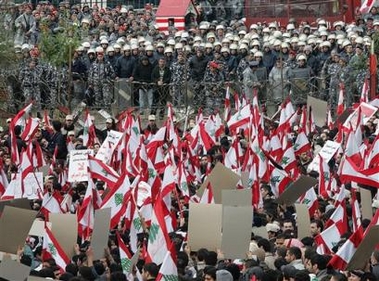 BEIRUT, Jan 17 (Reuters) – About 10,000 Lebanese students, chanting "America out", marched to the U.S. embassy near Beirut on Tuesday to protest against Washington’s policy in Lebanon. The protest, called by pro-Syrian parties including Shi’ite Muslim Hizbollah, came three days after clashes between police and a much smaller anti-U.S. demonstration in downtown Beirut.
BEIRUT, Jan 17 (Reuters) – About 10,000 Lebanese students, chanting "America out", marched to the U.S. embassy near Beirut on Tuesday to protest against Washington’s policy in Lebanon. The protest, called by pro-Syrian parties including Shi’ite Muslim Hizbollah, came three days after clashes between police and a much smaller anti-U.S. demonstration in downtown Beirut. 


